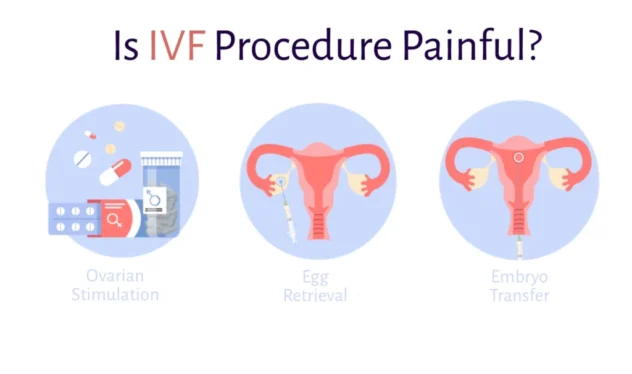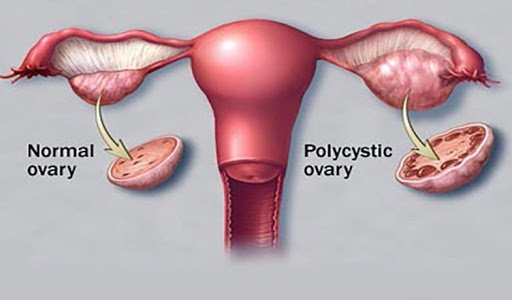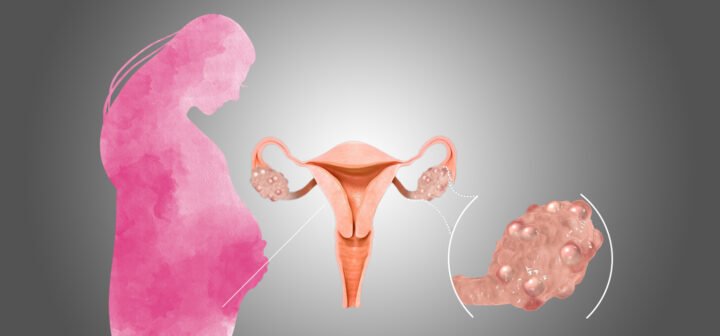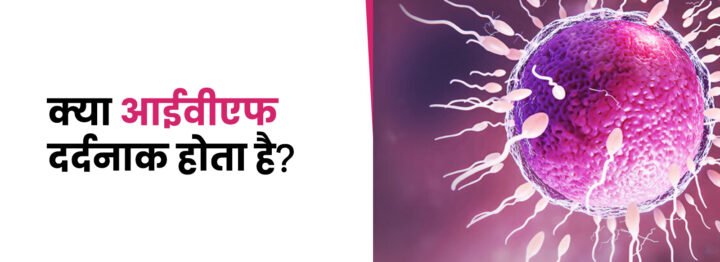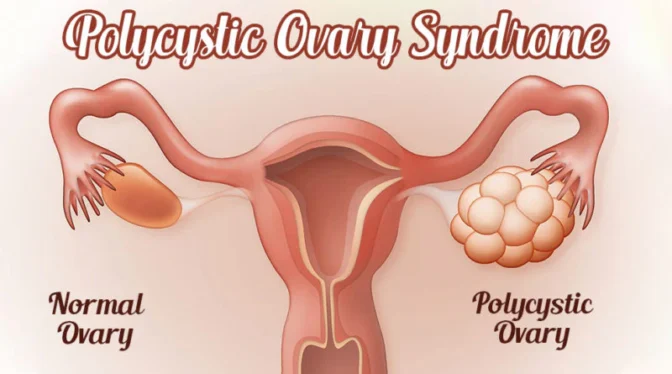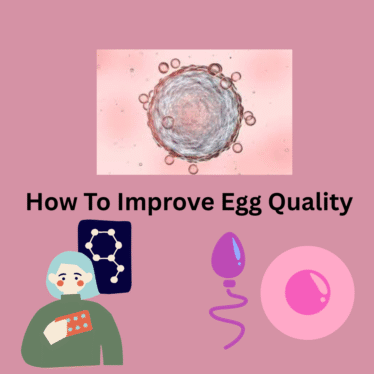Hope Begins Here: Understanding Fertility

For Many Women, The Journey To Motherhood Is A Deeply Personal And Emotional One. Whether You’re Dreaming Of A Baby In The Near Future, Trying To Conceive Now, Or Navigating Unexpected Challenges, Understanding Fertility Is The First Step Toward Empowerment, Clarity, And Hope.
This Article Is For Every Woman Who Has Ever Wondered, “Why Isn’t This Happening For Me? Or“Is It Too Late? Or Simply “What Do I Need To Know? Let’s Explore Fertility In All Its Complexity. Medically, Emotionally, And Holistically Because Hope Begins Here.
What Is Fertility?
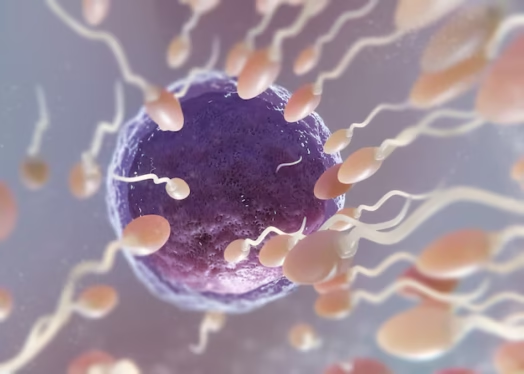
Fertility Refers To A Woman’s Ability To Conceive A Child And Carry A Pregnancy To Term. While It May Seem Like A Straightforward Biological Process, Female Fertility Is Influenced By A Wide Range Of Factors, Including:
- Ovulation (Release Of A Mature Egg)
- Hormonal Balance (Especially Estrogen, Progesterone, LH, And FSH)
- Fallopian Tube Health (Open And Functioning Properly)
- Uterine Lining (Thick Enough To Support Implantation)
- Cervical Mucus (To Allow Sperm Movement)
- General Health, Age, Lifestyle, And Genetics
Fertility Isn’t Just About “Getting Pregnant.” It’s About A Complex System In Your Body Working In Harmony And When Something Is Off, Conception Can Take Longer Than Expected Or May Require Medical Support. To Know More About Ayurvedic Fertility Products Click Here
The Role Of Age In Fertility

One Of The Most Important And Misunderstood Aspects Of Female Fertility Is Age. Women Are Born With All The Eggs They’ll Ever Have, And That Number Declines Over Time.
- By Puberty: 300,000 To 400,000 Eggs Remain
- By Age 30: Fertility Starts To Decline Gradually
- By Age 35: The Decline Becomes More Noticeable
- By Age 40: Fertility Drops Significantly
This Decline Isn’t Just About Quantity. Egg Quality Also Decreases, Making Conception More Difficult And Increasing The Risk Of Miscarriage Or Chromosomal Issues.That Said, Many Women Conceive Naturally Well Into Their Late 30s And Early 40s. Age Is A Factor, But It’s Not The Full Picture. Understanding Your Unique Fertility Profile Is More Important Than Any Number On A Chart.
What Causes Fertility Challenges In Women?
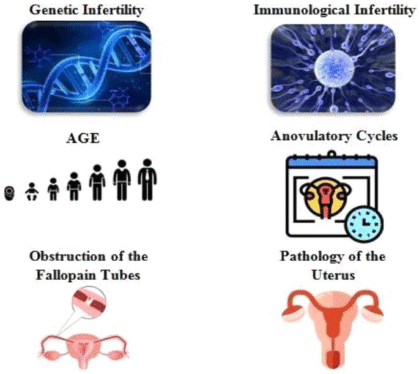
If You’ve Been Trying To Conceive For A While Without Success, You’re Not Alone. According To The World Health Organization, 1 In 6 People Worldwide Are Affected By Infertility. For Women, The Most Common Causes Include:
1. Polycystic Ovary Syndrome (PCOS)
PCOS Affects Hormone Levels And Ovulation. Irregular Periods Or Lack Of Ovulation Can Make Timing Conception Difficult.
2. Endometriosis
This Painful Condition Causes Uterine Lining Tissue To Grow Outside The Uterus, Often Leading To Inflammation, Scar Tissue, And Fertility Problems.
3. Ovulation Disorders
Some Women Don’t Ovulate Regularly Due To Stress, Weight Changes, Thyroid Issues, Or Hormone Imbalances.
4. Tubal Blockages
Blocked Or Damaged Fallopian Tubes (Often Due To Infections, Surgery, Or Pelvic Inflammatory Disease) Can Prevent The Egg And Sperm From Meeting.
5. Uterine Or Cervical Abnormalities
Polyps, Fibroids, Or An Unusually Shaped Uterus Can Make It Harder For Implantation To Occur.
6. Diminished Ovarian Reserve
As Women Age, Their Supply Of Healthy Eggs Diminishes. In Some Women, This Process Happens Earlier Than Expected.
7. Unexplained Infertility
In Some Cases, All Test Results May Be Normal And Yet, Pregnancy Doesn’t Happen. This Can Be One Of The Most Emotionally Difficult Diagnoses, But It Doesn’t Mean There’s No Hope.

When Should You See A Fertility Specialist?
General Guidelines Suggest:
- If You’re Under 35 And Have Been Trying To Conceive For 12 Months Without Success
- If You’re 35 Or Older And Have Been Trying For 6 Months
- If You Have Irregular Or Absent Periods
- If You’ve Had Two Or More Miscarriages
- If You Have A Known Reproductive Condition (E.G., PCOS, Endometriosis)
Early Evaluation Can Give You Clarity And Help You Make Informed Decisions — Even If You’re Not Ready To Try Right Now.
What Does Fertility Testing Look Like?
Fertility Testing Can Feel Intimidating, But It’s Often Non-Invasive And Insightful. For Women, This Typically Includes:
1. Hormone Blood Tests
- AMH (Anti-Müllerian Hormone): Measures Ovarian Reserve
- FSH And LH: Assess Ovulation And Egg Health
- Estradiol And Progesterone: Check Cycle Health
2. Transvaginal Ultrasound
Used To Examine Ovaries And Uterus, And Count Antral Follicles (Egg-Containing Follicles).
3. Hysterosalpingography (HSG)
An X-Ray Test To Check If The Fallopian Tubes Are Open And The Uterus Is Normal.
4. Thyroid And Prolactin Testing
Because Hormonal Imbalances Can Affect Ovulation.Understanding Your Results Gives You A Roadmap. Whether It Leads To Natural Conception, Medication, IUI, IVF, Or Egg Freezing.
Lifestyle Factors That Affect Fertility
Your Daily Habits Can Play A Significant Role In Fertility. While No Lifestyle Change Can “Guarantee” Pregnancy, Optimizing Your Health Can Improve Your Chances:
1. Nutrition
- Focus On Whole Foods: Fruits, Vegetables, Whole Grains, Lean Proteins, And Healthy Fats.
- Include Folate-Rich Foods, Omega-3s, And Antioxidants.
- Limit Processed Foods, Sugar, Caffeine, And Alcohol.
2. Weight
Both Underweight And Overweight Women May Experience Disrupted Ovulation. Aim For A Balanced, Sustainable Approach To Health.
3. Exercise
Moderate Movement Supports Hormonal Balance And Stress Management. Excessive, High-Intensity Training, However, Can Negatively Impact Ovulation.
4. Stress
Chronic Stress Can Affect Hormonal Health. Try Yoga, Meditation, Journaling, Or Therapy To Support Your Mental Well-Being.
5. Sleep
Sleep Helps Regulate The Hormones That Control Ovulation And Metabolism. Aim For 7–9 Hours Of Restful Sleep Each Night.
6. Toxins
Avoid Exposure To Endocrine Disruptors Found In Some Plastics, Cosmetics, And Cleaning Products. Look For BPA-Free And Non-Toxic Alternatives.
Emotional Wellness On The Fertility Journey

Trying To Conceive, Especially When It Doesn’t Go As Planned, Can Be Emotionally Exhausting. It Can Trigger Feelings Of Isolation, Frustration, Guilt, And Grief. You Might Feel Like Your Body Is Failing You. But It’s Not Your Body Is Doing Its Best. You Are Doing Your Best.
Consider:
- Joining A Fertility Support Group or You Can Book A Consultation With Us At WWW.BROSISHERBAL.COM
- Talking To A Therapist Who Specializes In Reproductive Health
- Practicing Self-Compassion, Not Self-Judgment
- Setting Healthy Boundaries With Social Media Or Insensitive Conversations
Remember: Fertility Does Not Define Your Worth. You Are Whole, Powerful, And Worthy, Regardless Of Your Reproductive Status.
Exploring Fertility Treatments Through Natural Ayurvedic Wisdom
Fertility Is A Delicate Balance Of Body, Mind, And Spirit. While Modern Medicine Offers Powerful Interventions, Many Women Are Seeking Gentle, Holistic Approaches To Support Their Reproductive Health — And Ayurveda, The Ancient Indian System Of Medicine, Offers Time-Tested Tools To Do Just That.
Rooted In Nature And Focused On Balance, Ayurvedic Fertility Treatments Aim To Restore Harmony To The Body’s Natural Rhythms, Support Hormonal Health, And Prepare The Womb For Conception — Physically And Energetically.
In This Blog, We’ll Explore How Ayurveda Approaches Fertility, Common Treatments, Herbs, Dietary Guidelines, And Lifestyle Practices For Women Trying To Conceive Naturally.
Understanding Fertility Through The Ayurvedic Lens
Ayurveda Views Fertility As A Reflection Of The Overall Health And Vitality (Ojas) Of A Woman. A Strong Digestive Fire (Agni), Balanced Hormones (Dhatus), And Calm Mind (Sattva) Are All Essential For Conception. According To Ayurveda, The Reproductive System Is Nourished Through The Final Essence Of Digestion, And Any Imbalance In The Doshas (Vata, Pitta, And Kapha) Can Disrupt Fertility.
Ayurvedic View Of Common Fertility Challenges:
- Vata Imbalance: Causes Irregular Periods, Anxiety, Dry Skin, And Issues With Implantation.
- Pitta Imbalance: Leads To Inflammation, Infections, Excessive Bleeding, Or Conditions Like Endometriosis.
- Kapha Imbalance: Causes Sluggish Metabolism, Weight Gain, PCOS, Or Amenorrhea (Absence Of Menstruation).
Ayurvedic Treatment Aims To Correct The Underlying Doshic Imbalance, Cleanse The Body, Rejuvenate The Reproductive Tissues, And Enhance Fertility Naturally.
Key Ayurvedic Fertility Treatments For Women

1. Panchakarma (Detoxification Therapy)
Before Starting Conception Efforts, Ayurveda Often Recommends Panchakarma, A Powerful Detoxification Process That Removes Toxins (Ama) From The Body And Mind. It Includes:
- Abhyanga: Warm Herbal Oil Massage
- Swedana: Herbal Steam Therapy
- Vamana/Virechana: Induced Vomiting Or Purgation (Under Guidance)
- Basti: Medicinal Enema To Balance Vata Dosha
- Nasya: Nasal Cleansing
Panchakarma Resets The Body, Regulates Hormones, And Clears Obstructions In The Reproductive Channels (Artava Vaha Srotas).
2. Herbal Remedies For Female Fertility

Ayurveda Uses Herbs That Are Rasayana (Rejuvenating) And Specifically Support Reproductive Health:
- Shatavari (Asparagus Racemosus): A Powerful Female Tonic, Balances Hormones, Nourishes The Womb, Supports Ovulation.
- Ashwagandha (Withania Somnifera): Reduces Stress, Boosts Stamina, Improves Hormonal Balance.
- Lodhra (Symplocos Racemosa): Balances Pitta, Helpful In Managing PCOS And Uterine Health.
- Guduchi (Tinospora Cordifolia): Boosts Immunity, Regulates Menstrual Cycles.
- Dashamoola: A Blend Of Ten Roots That Calms The Nervous System And Balances Vata.
- Phala Ghrita: A Medicated Ghee Used To Nourish The Reproductive System.
Note: Herbal Treatments Should Be Taken Under The Supervision Of An Ayurvedic Doctor To Ensure The Correct Dosage And Compatibility.
Ayurvedic Diet For Fertility
Ayurveda Believes “You Are What You Digest,” And Fertility Depends On Strong Digestion (Agni) And Proper Nourishment.
Fertility-Friendly Foods:
- Whole, Fresh Foods: Organic Grains, Vegetables, And Fruits
- Healthy Fats: Ghee, Sesame Oil, Nuts, And Seeds
- Warming Spices: Cumin, Fennel, Turmeric, Ginger To Boost Digestion And Circulation
- Protein-Rich Lentils And Dairy: Especially Mung Dal, Milk, Paneer (For Kapha Types In Moderation)
- Sweet, Nourishing Foods: Root Vegetables, Dates, And Soaked Almonds To Build Ojas
Foods To Avoid:
- Cold, Raw Foods (Especially For Vata Imbalance)
- Processed, Fried, Or Stale Foods
- Excess Caffeine Or Alcohol
- Very Spicy, Sour, Or Fermented Foods (Can Aggravate Pitta)
Eating With Mindfulness, In A Calm Environment, And Chewing Thoroughly Also Aids Digestion And Assimilation.
Ayurvedic Lifestyle Tips To Boost Fertility
Ayurveda Emphasizes A Holistic Daily Routine (Dinacharya) That Supports Mental, Physical, And Emotional Health All Essential For Fertility.
Lifestyle Practices:
- Wake With The Sun To Align With Circadian Rhythms
- Daily Abhyanga (Self-Massage With Warm Sesame Oil) To Calm The Nervous System
- Gentle Yoga And Pranayama (Breathing Techniques) To Reduce Stress And Stimulate Reproductive Organs
- Adequate Rest Avoid Overstimulation, Screen Time Before Bed
- Meditation And Mantras Especially Santana Gopala Mantra For Fertility
- Avoid Overexertion, Excessive Travel, Or Skipping Meals, Especially During The Second Half Of The Menstrual Cycle
Fertility And The Menstrual Cycle In Ayurveda
The Menstrual Cycle Is Seen As A Window Into A Woman’s Health. Ayurveda Encourages Women To Align Their Diet, Exercise, And Rest According To The Different Phases:
- Menstrual Phase (Rajasrava): Rest, Warmth, And Grounding Foods
- Follicular Phase (Ritu Kala): Light, Energizing Foods, Creativity, And Movement
- Ovulation (Rutumat Kaal): Best Time For Conception — Focus On Romance, Nourishment, And Positive Emotions
- Luteal Phase: Support With Warm Foods, Emotional Grounding, And Gentle Rest
The Role Of Mental & Emotional Health In Fertility
In Ayurveda, The Mind (Manas) Plays An Equal Role In Conception. Stress, Unresolved Emotions, Or Fear Can Block Energy In The Reproductive System.
Practices Like:
- Journaling
- Chanting Fertility Mantras
- Visualization And Gratitude
- Supportive Female Circles Or Counseling
Spiritual Fertility: Conceiving With Intention
Ayurveda Considers Conception Not Just Physical But Spiritual Bringing In A Soul Through Conscious Union.
Couples Are Encouraged To:
- Purify Their Bodies And Minds Through Sattvic Living
- Offer Prayers To Deities Like Lord Dhanvantari, Goddess Parvati, Or Santana Lakshmi
- Perform Garbhadhana Samskara — A Vedic Ritual For Conscious Conception
- Use Fertility Stones Or Yantras In The Home To Promote Harmony
Final Thoughts: Nature Knows Best
Ayurveda Teaches Us That Fertility Is Not Just About “Fixing” The Body It’s About Creating The Ideal Environment For Life To Begin. When Your Body Is In Balance, Your Mind Is Calm, And Your Spirit Is Open, Conception Becomes More Than Biology It Becomes A Sacred Invitation. Whether You’re Just Starting Your Fertility Journey Or Exploring Gentle Alternatives To Conventional Treatment, Ayurveda Offers A Compassionate And Comprehensive Path Toward Wholeness And Motherhood. Nature Knows Trust The Process. Support Your Body. And Let Healing Begin.

